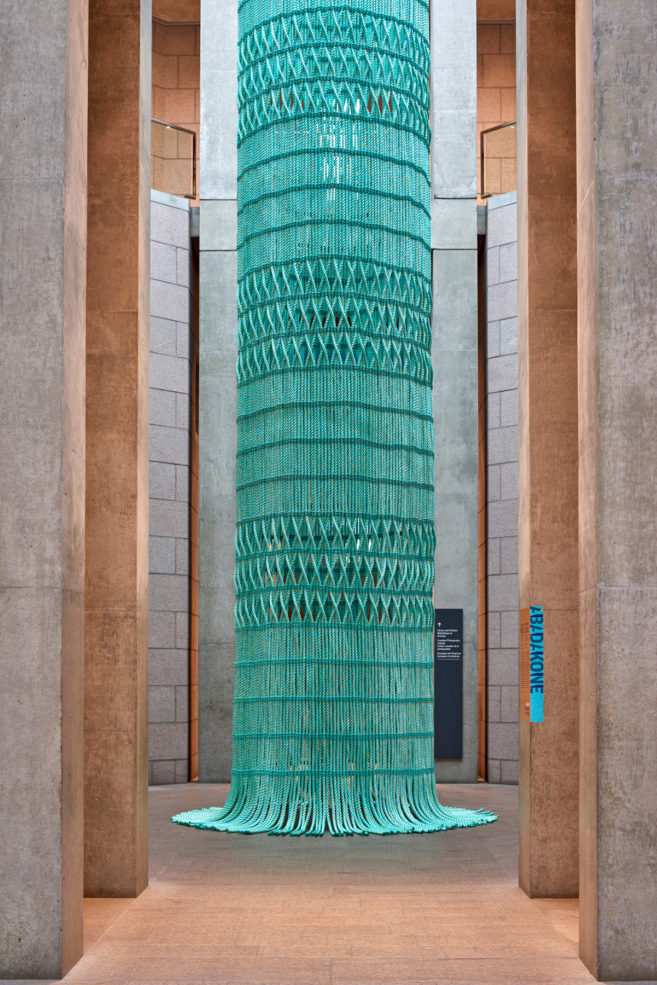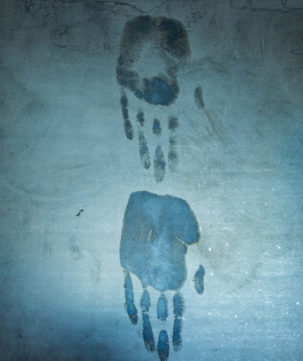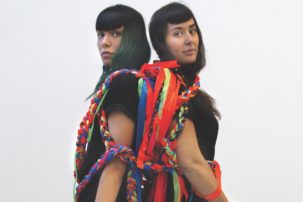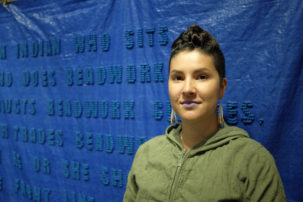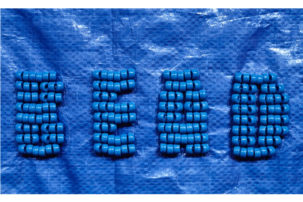Addressing the open serenity of the land, Jeneen Frei Njootli’s latest solo exhibition was a call to complex relationality with ancestral territories. “small mounds of flesh form” consisted of new video and installation works that articulated their need for reciprocity with their territories in a timely observation of the Western colonial effects of climate change and contamination. Like a nostalgic love letter to the land, this exhibition demonstrated the levels of raw and genuine affinity that Indigenous Peoples emit for the spaces that carry them.
A video projection took over one wall of the dimly lit gallery space, with a haunting soundscape that set the tone for the exhibition: lonely, vast, grey and peaceful. The video oscillated between a series of blurry shots, revealing Njootli’s figure amid an overcast meadow with mounds on the horizon. Nearby, a solitary bench asked viewers to sit in contemplation; a small bundle of sage rested upon it, a token of the artist’s lingering presence. Njootli’s practice often encapsulates performance, leaving behind ethereal remains of a powerful moment in time. In this case, their works invoked the feelings of profound aloneness one feels when confronted with the unpredictability of the open landscape.
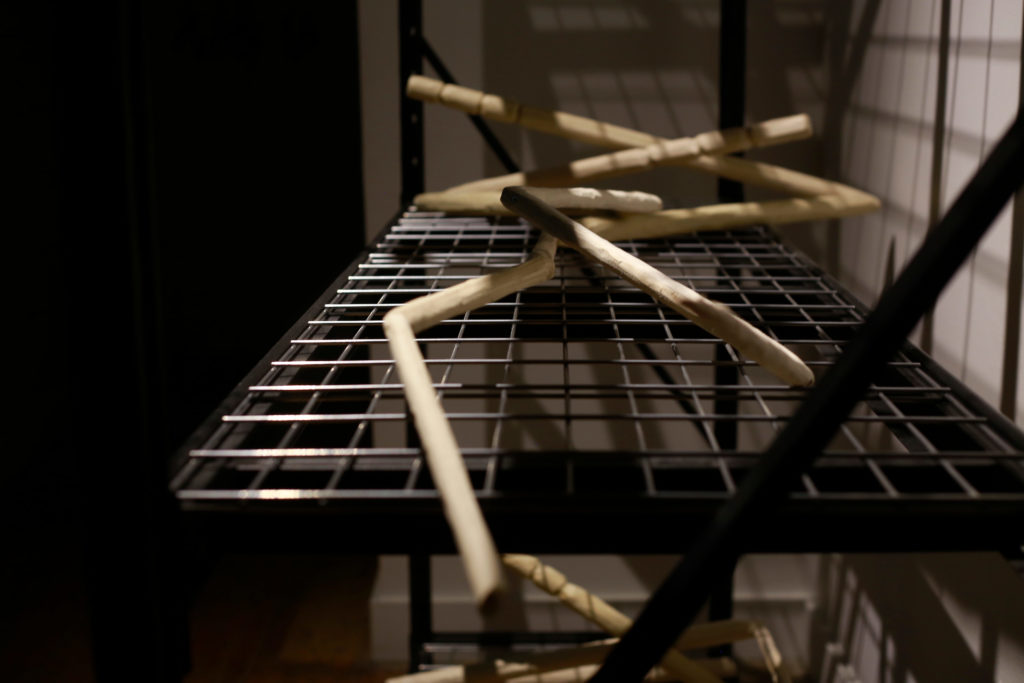 Jeneen Frei Njootli, small mounds of flesh form (detail), 2020. Digital video, audio, carved wood and metal shelving. Dimensions variable. Courtesy Platform Centre.
Jeneen Frei Njootli, small mounds of flesh form (detail), 2020. Digital video, audio, carved wood and metal shelving. Dimensions variable. Courtesy Platform Centre.
Back by the gallery entrance sat a multilevel rack with large carved wooden pegs, spiky and jutting out atop one another. Upon closer inspection, the raggedy sticks resembled mosquito legs, bent at odd angles and tapered. It produced a vision of a large mosquito that had lost a battle, its plucked-off legs now displayed on a trophy shelf.
In the back room another video played on a medium-size monitor resting on the floor and leaning against the wall. In it, mosquitoes buzzed in and out of focus as trees swayed in the background. Meanwhile, under the screen’s glow, a curved and carved stick lay on the floor, another object representing a spectre of the artist’s presence. Like a fragment of the large defeated mosquito at the entrance, the arched wooden piece resembled a lifeless stinger. The swarm of mosquitoes reminds us of the hostility that accompanies relationships to land—rather than a glorification, it demonstrates the complexity of the shared domain with all beings.
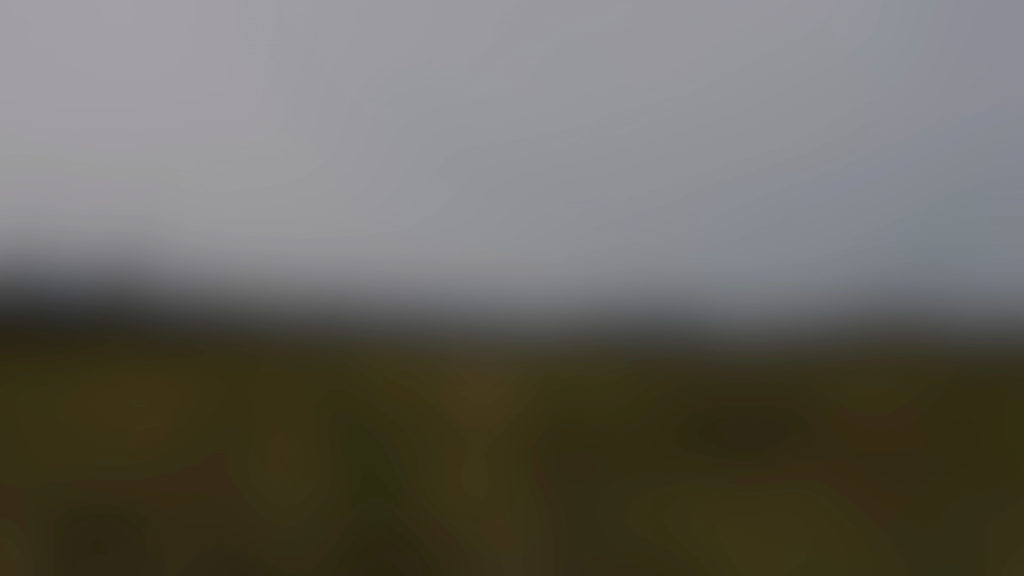 Jeneen Frei Njootli, small mounds of flesh form (detail), 2020. Digital video, audio, carved wood and metal shelving. Dimensions variable. Courtesy Platform Centre.
Jeneen Frei Njootli, small mounds of flesh form (detail), 2020. Digital video, audio, carved wood and metal shelving. Dimensions variable. Courtesy Platform Centre.
Njootli’s exhibition veered away from the performative rhetoric around land-based pedagogies that we often see overused and misunderstood when engaging with land art practices. Instead, it spoke to the loving yet trying dependency that we, as Indigenous people, often have in regard to our connectivity with our ancestral territories. It is demanding, nurturing and at times unforgiving.
On the whole, “small mounds of flesh form” demonstrated complex relationships to the territories that nurture us. By avoiding the embellished narratives typical of other land-based epistemologies, Njootli instead unearthed the transience of living on the land. Through their ghostly stillness, the artworks in the exhibition embraced the uncertainty of the earth and, rather than brushing off the contentious aspects, accepted all that it provides—even the small mounds of flesh formed by the mosquito’s bite.
The article originally appeared in print with the title “Jeneen Frei Njootli.”

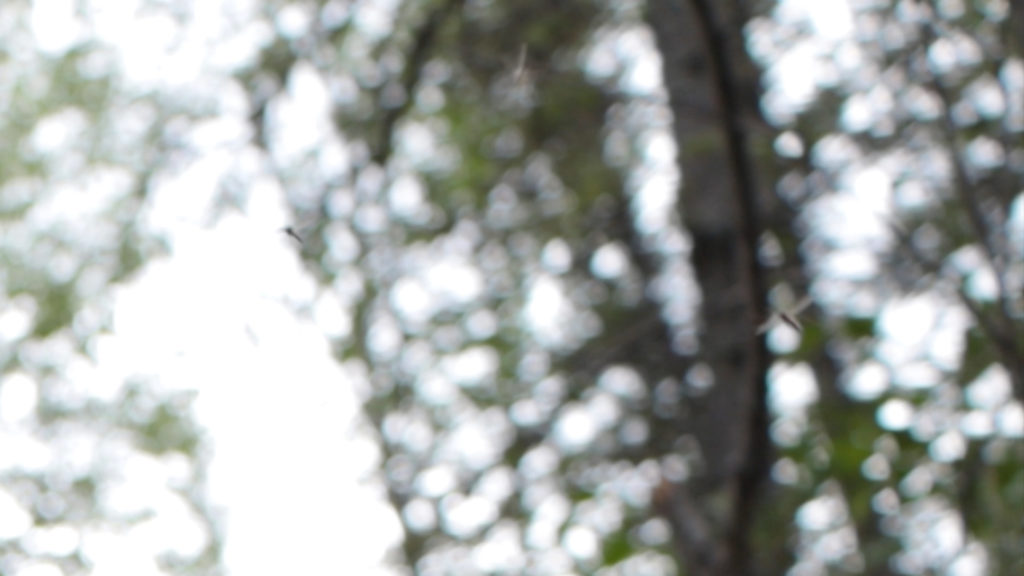 Jeneen Frei Njootli, small mounds of flesh form (detail), 2020. Digital video, audio, carved wood and metal shelving. Dimensions variable. Courtesy Platform Centre.
Jeneen Frei Njootli, small mounds of flesh form (detail), 2020. Digital video, audio, carved wood and metal shelving. Dimensions variable. Courtesy Platform Centre.
